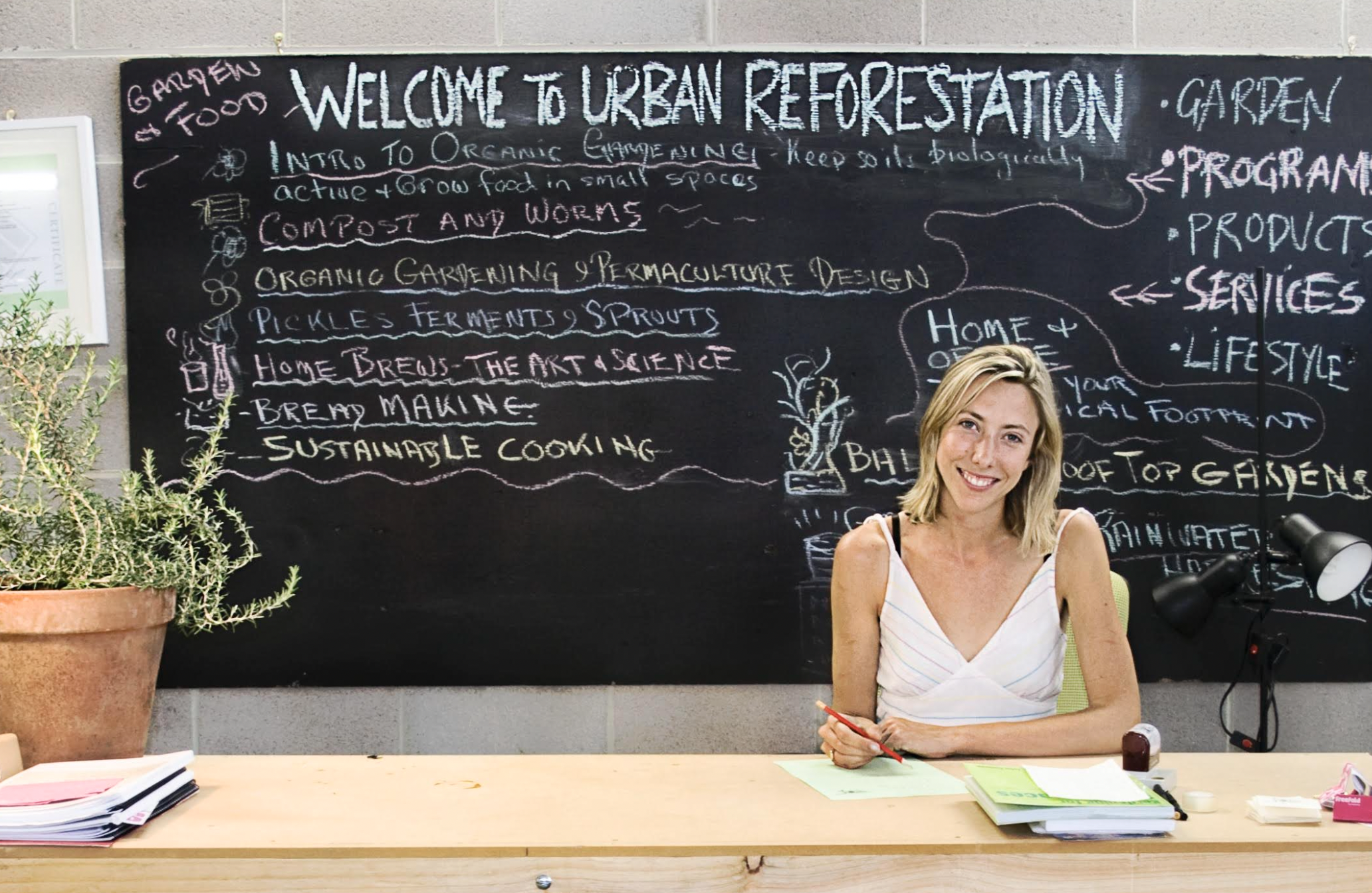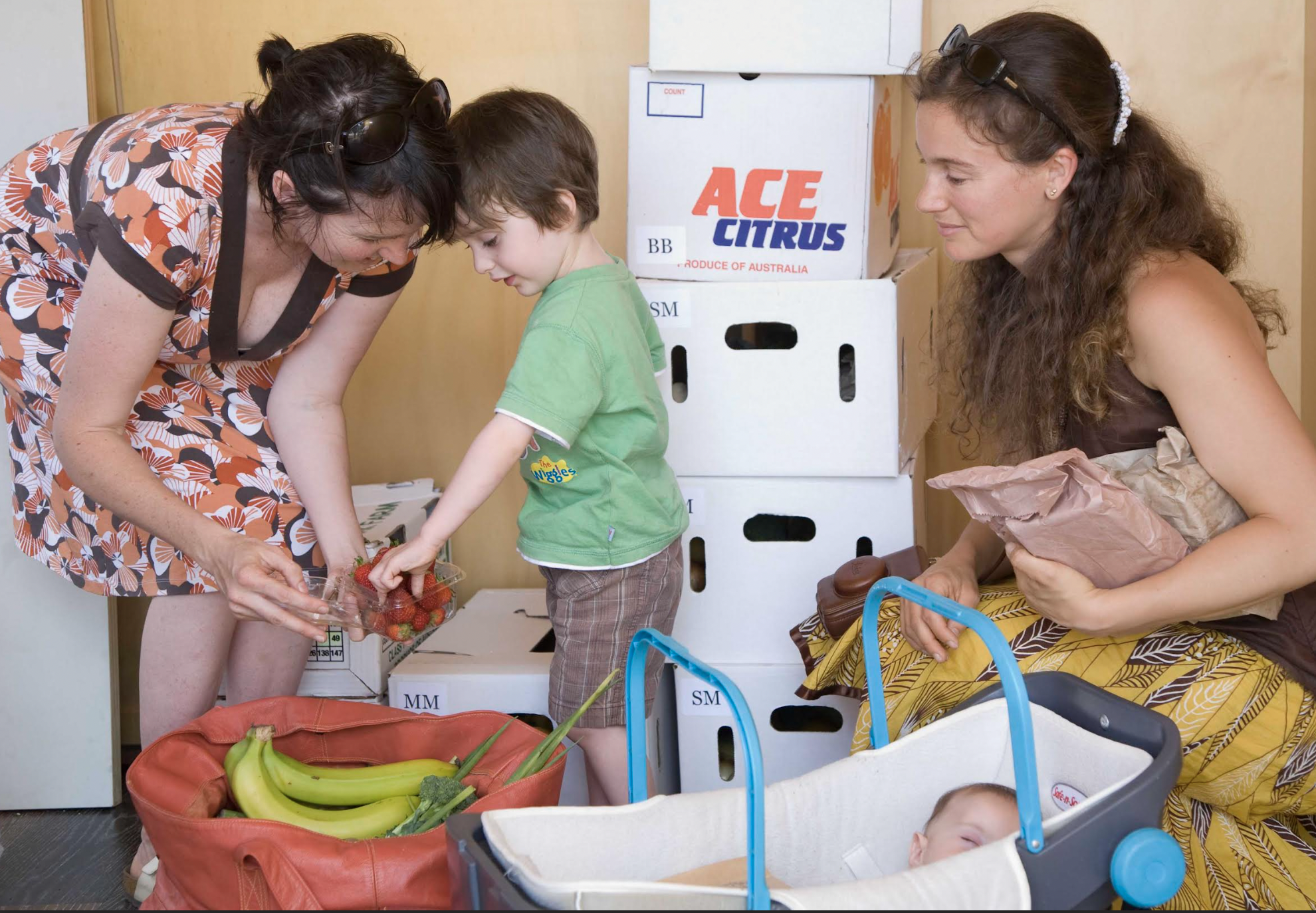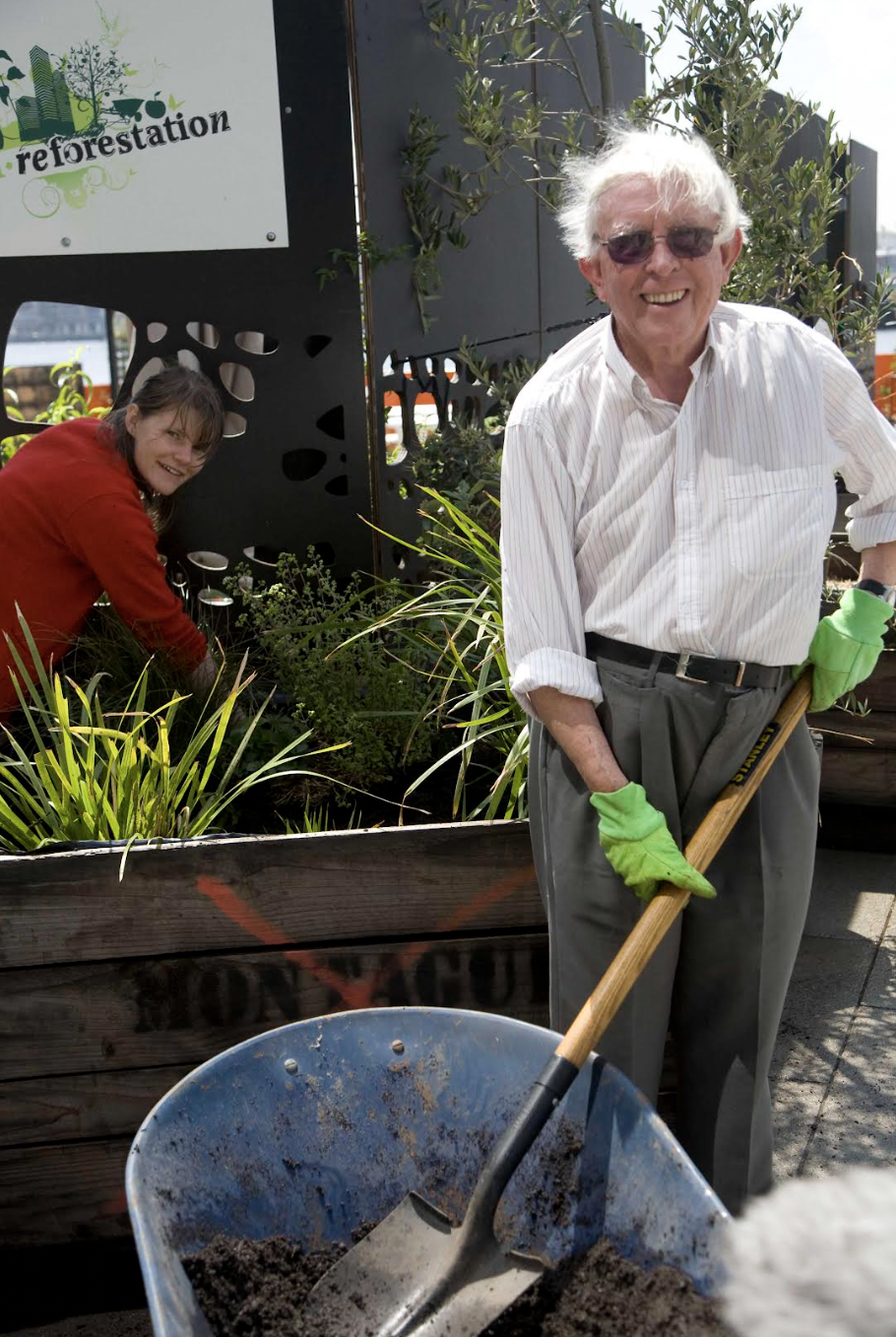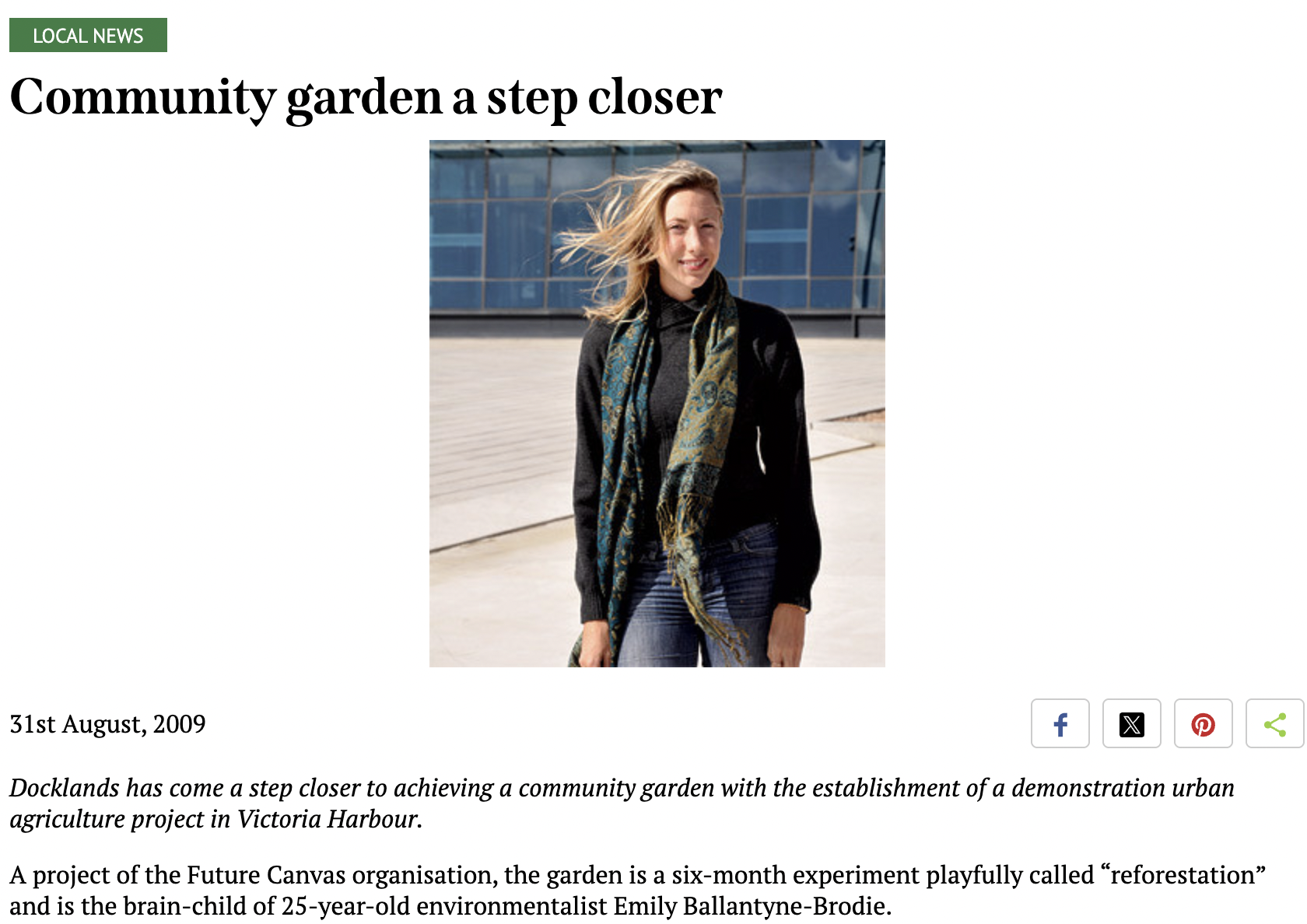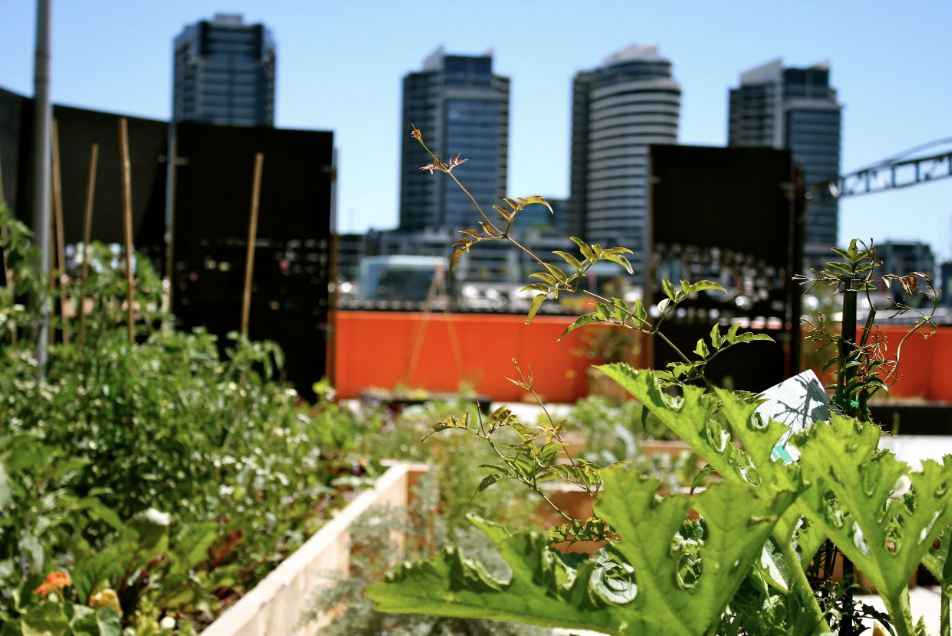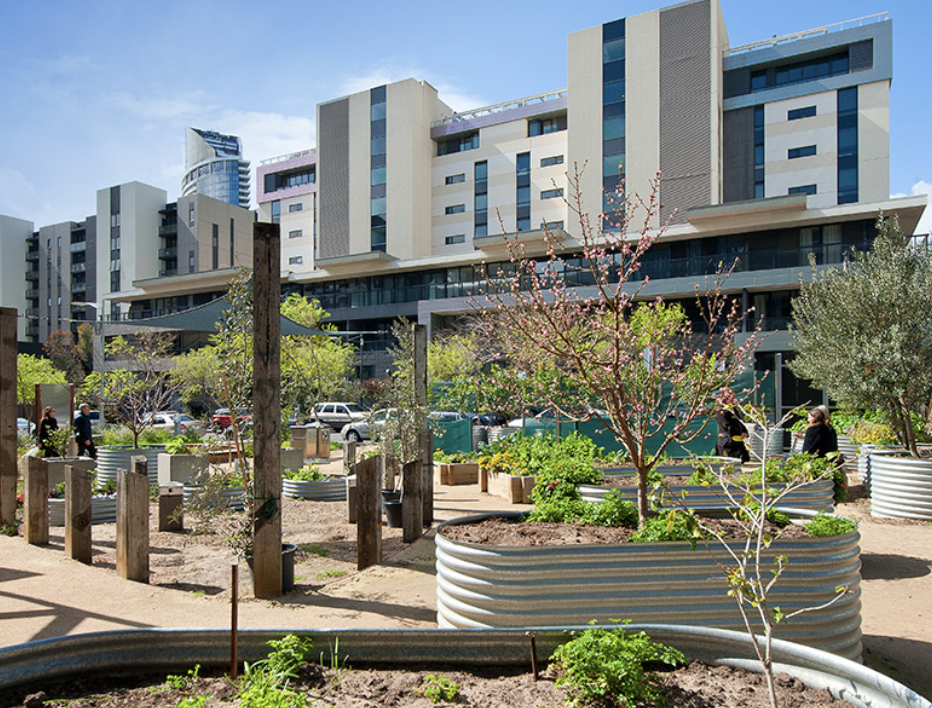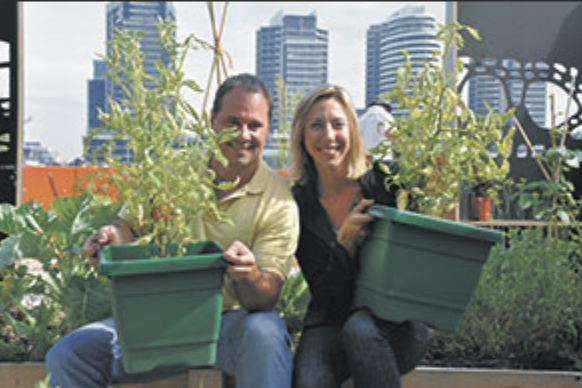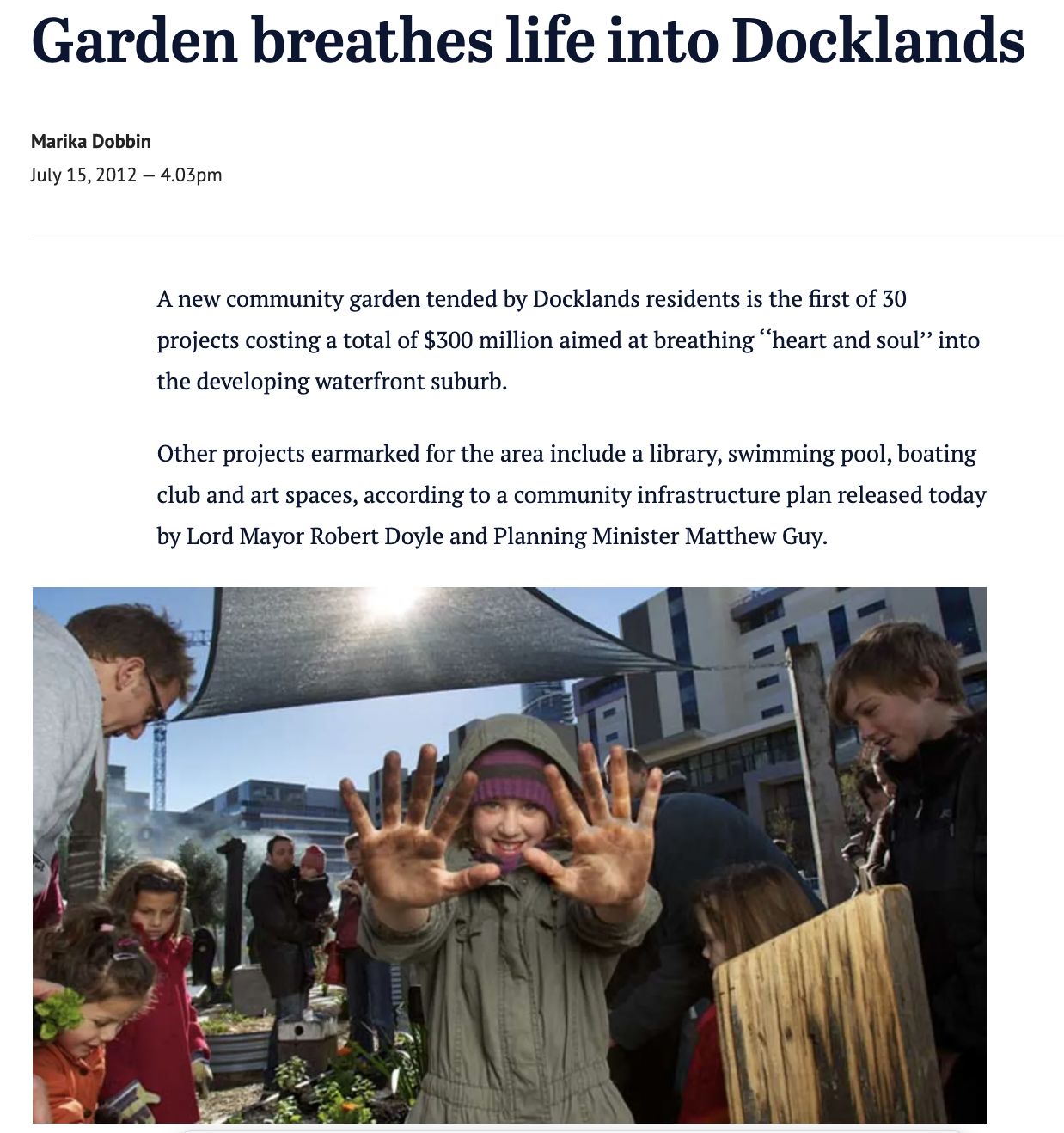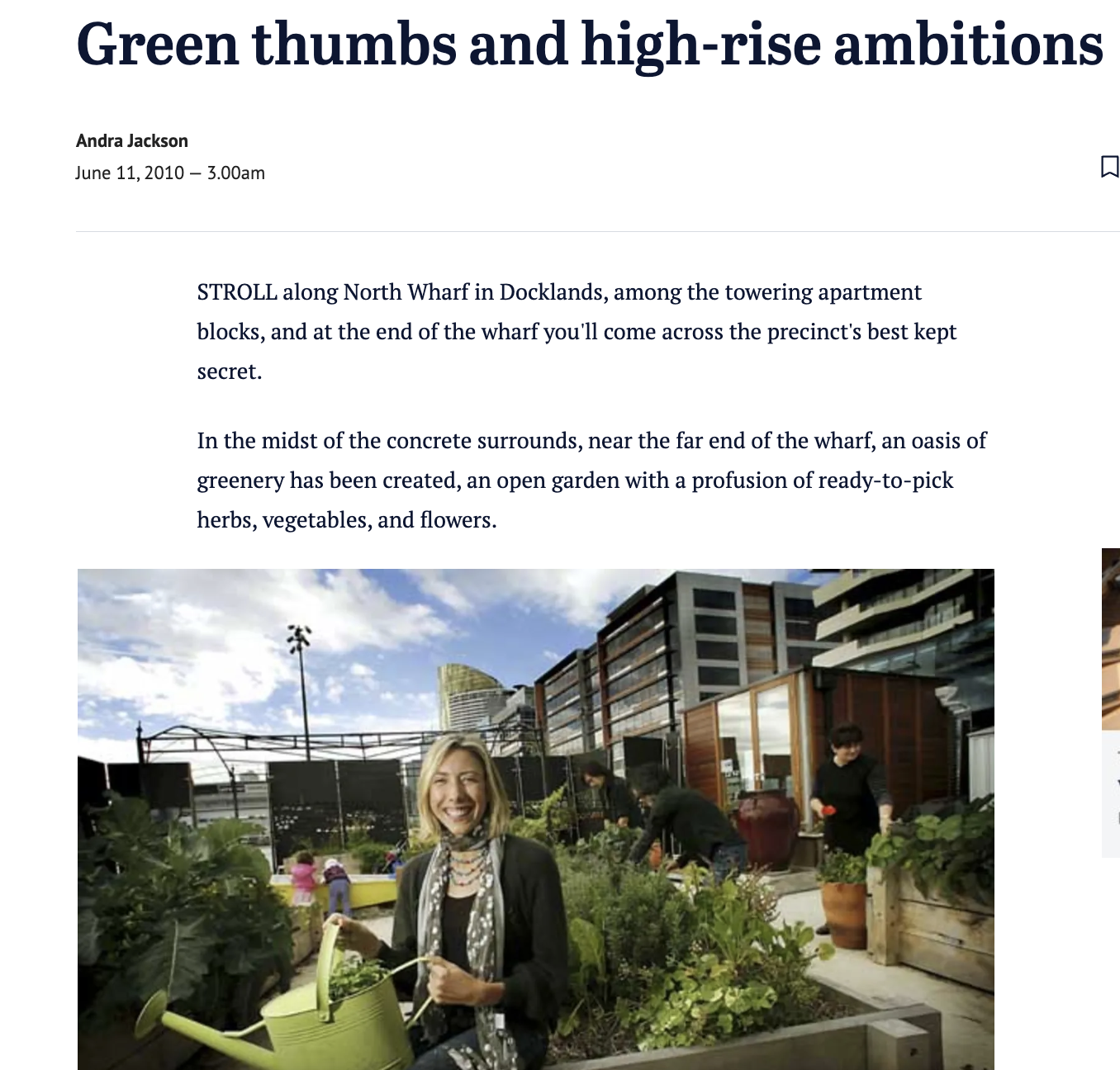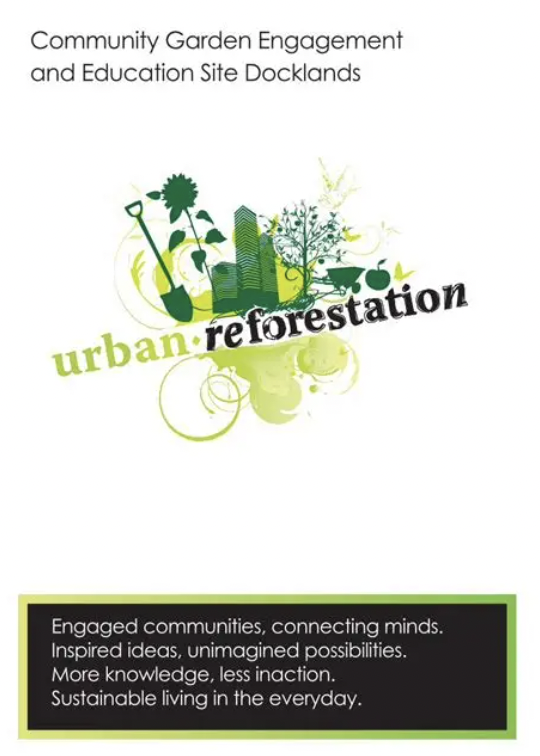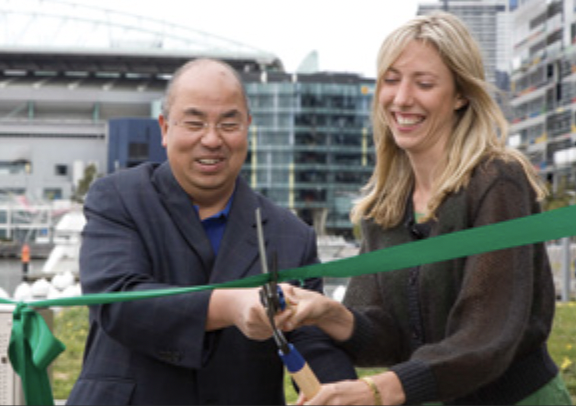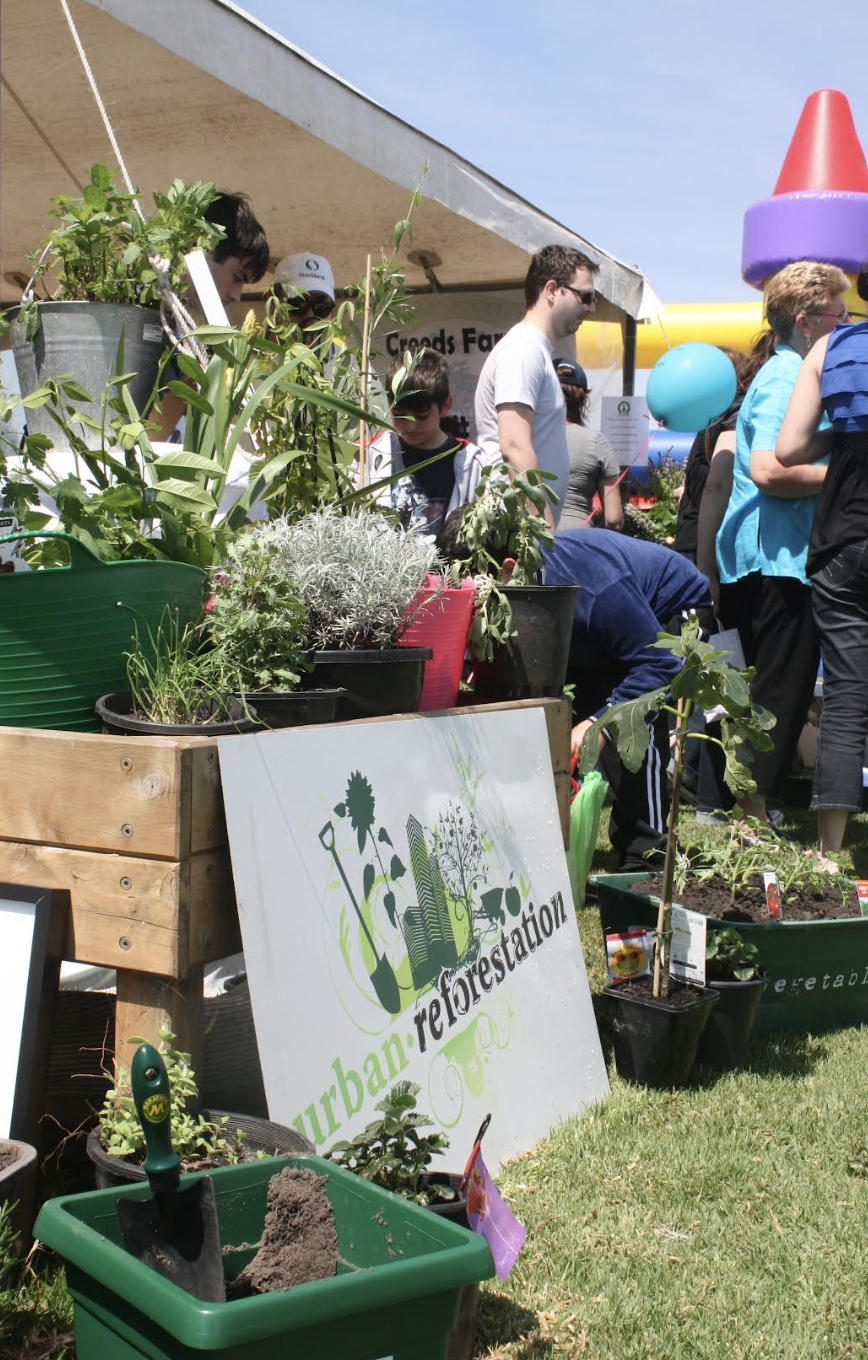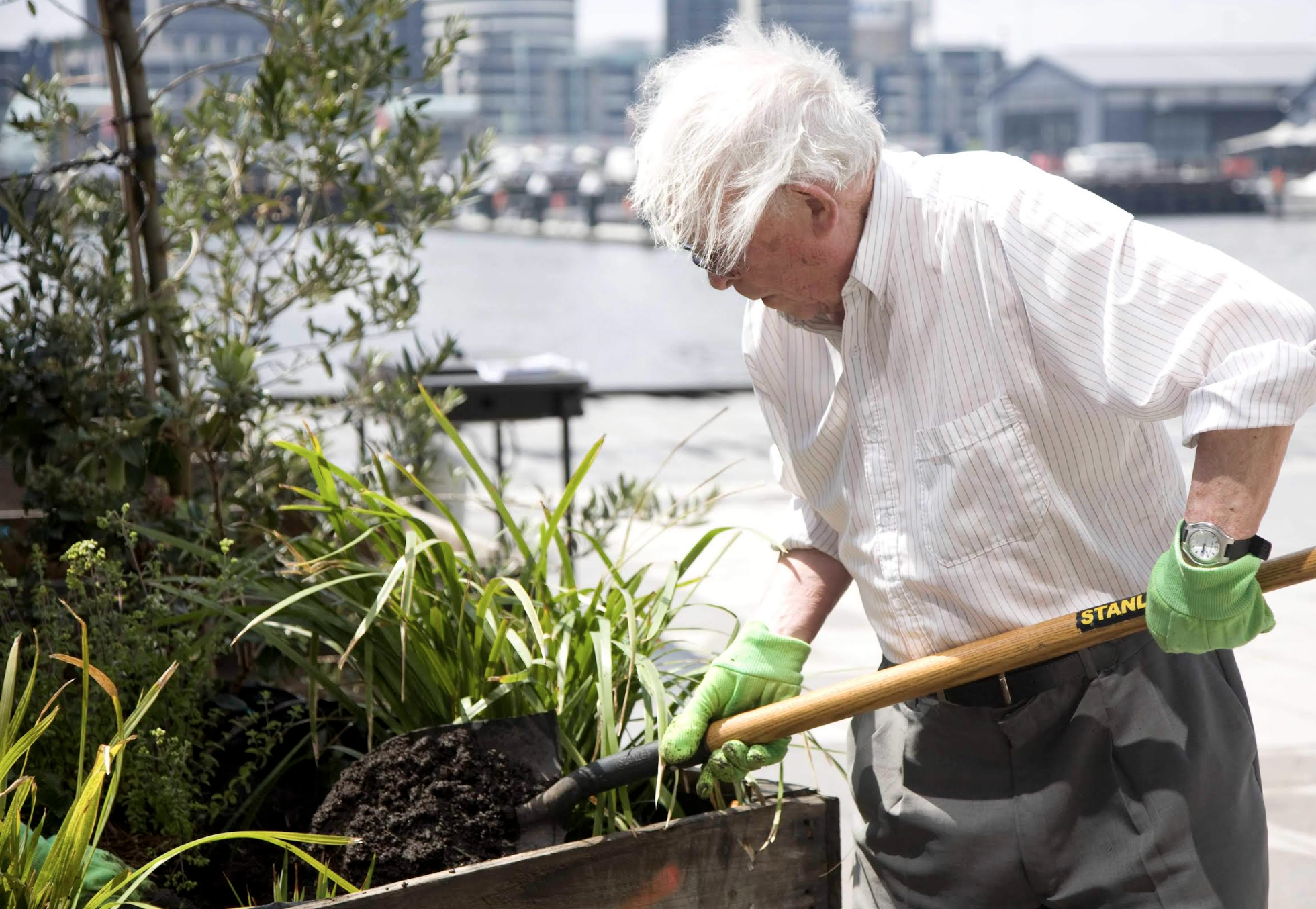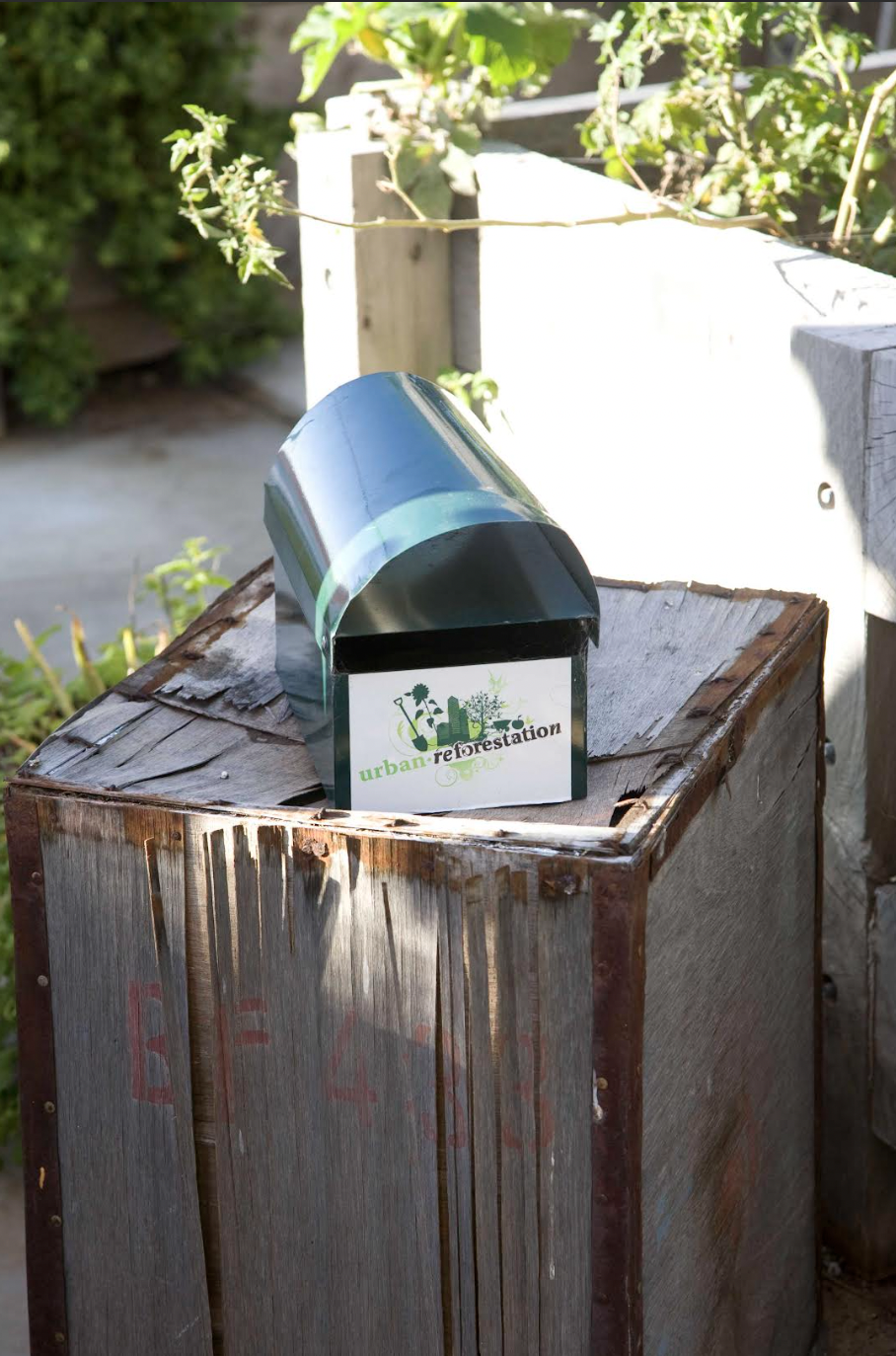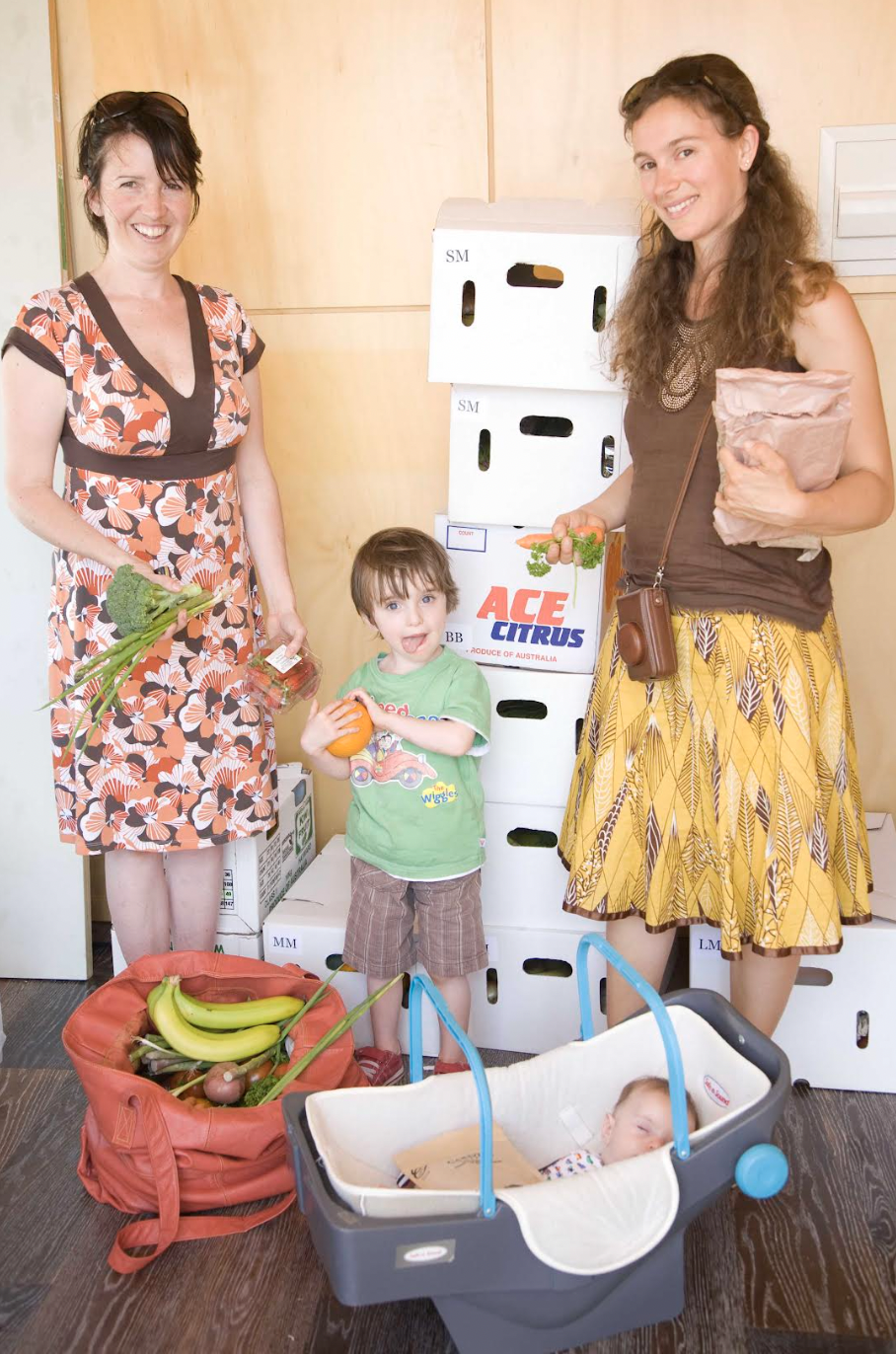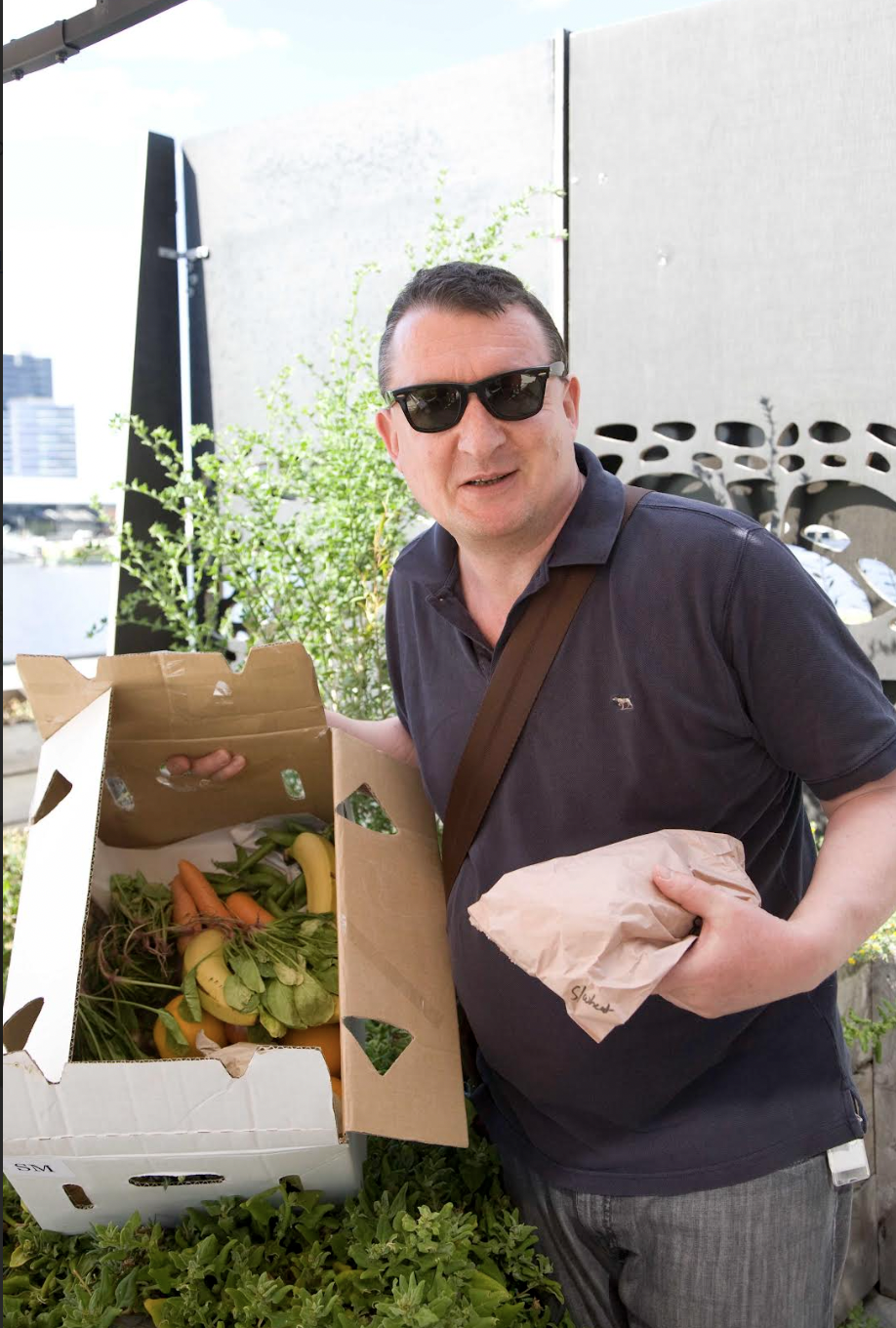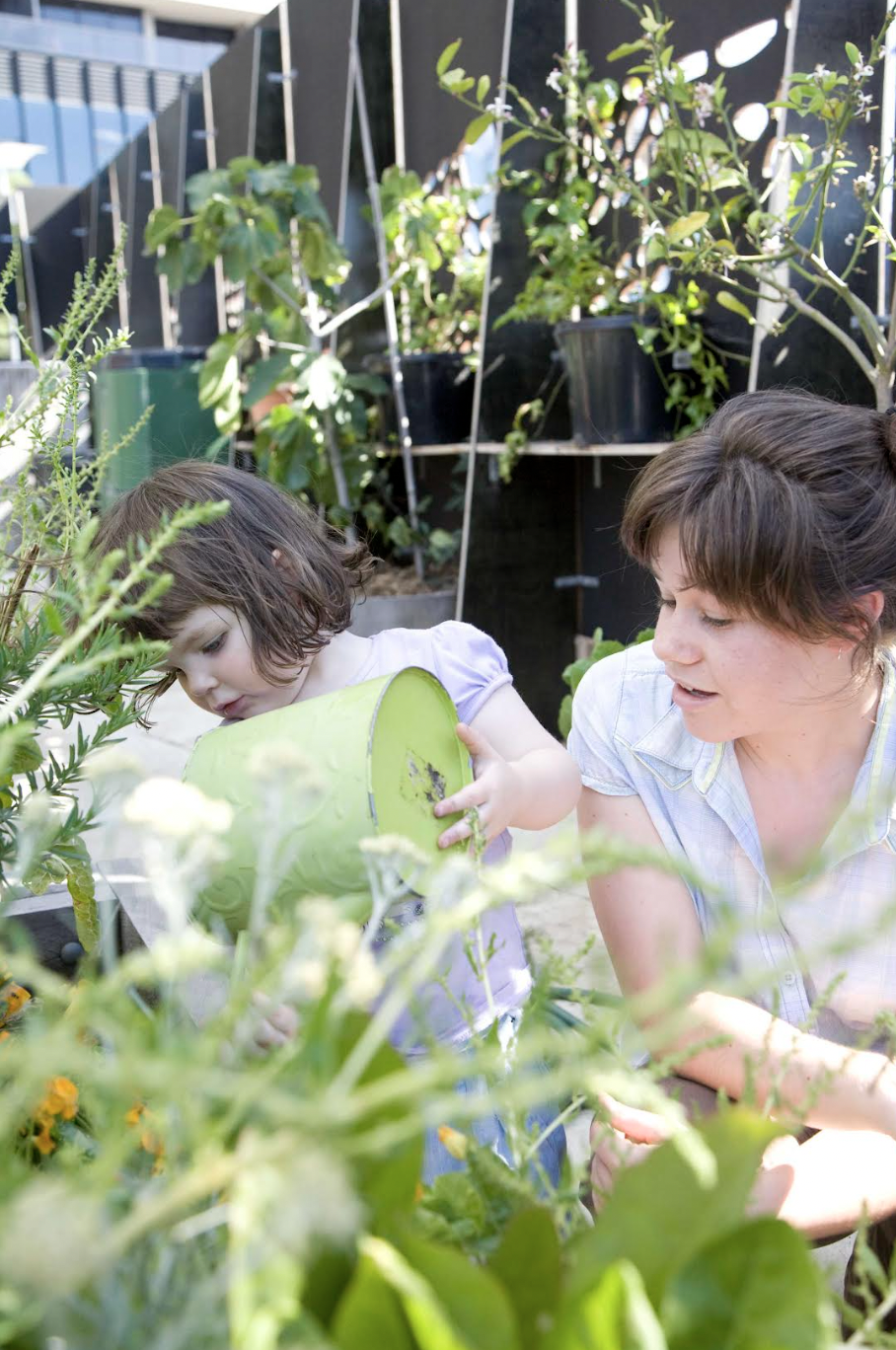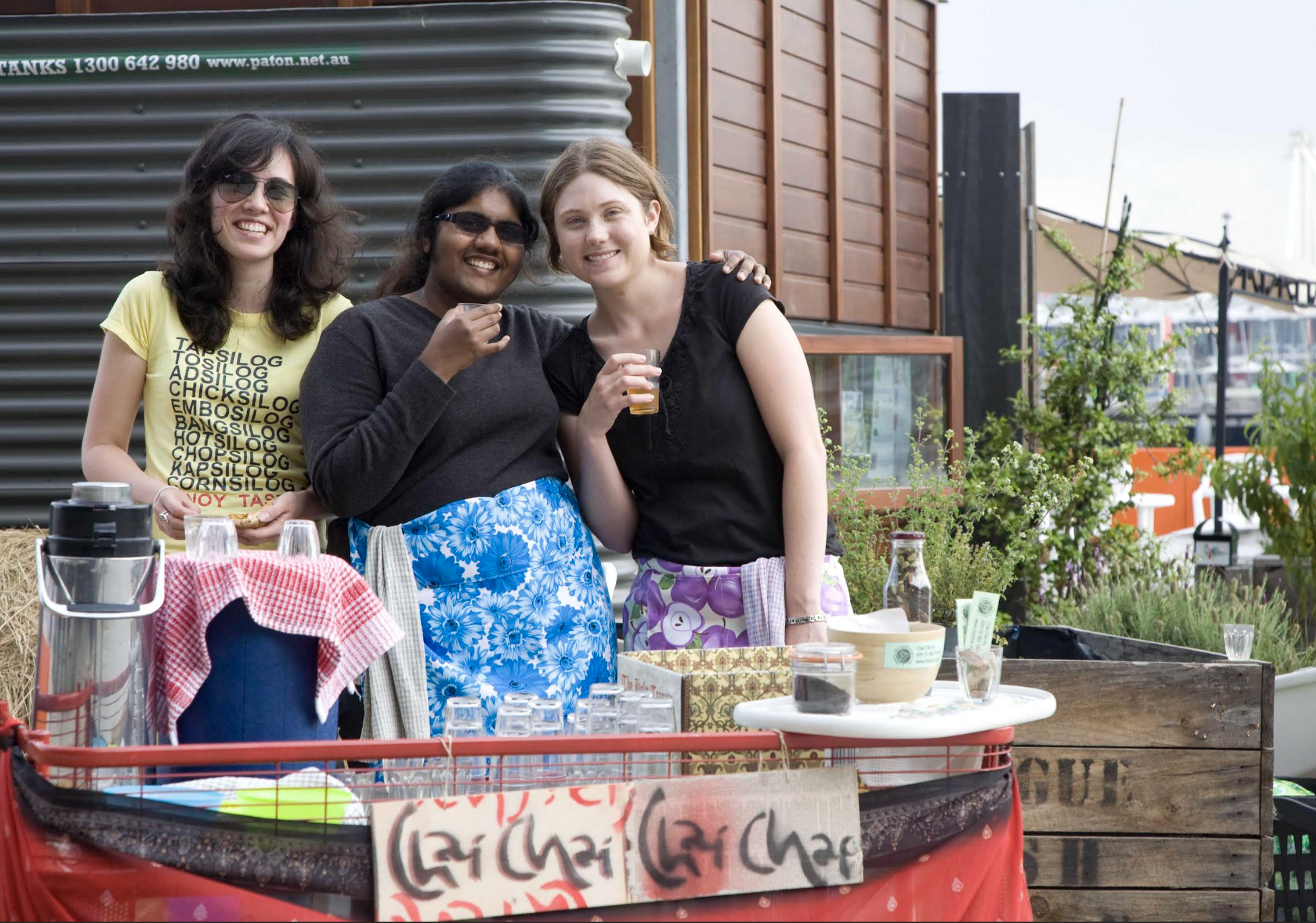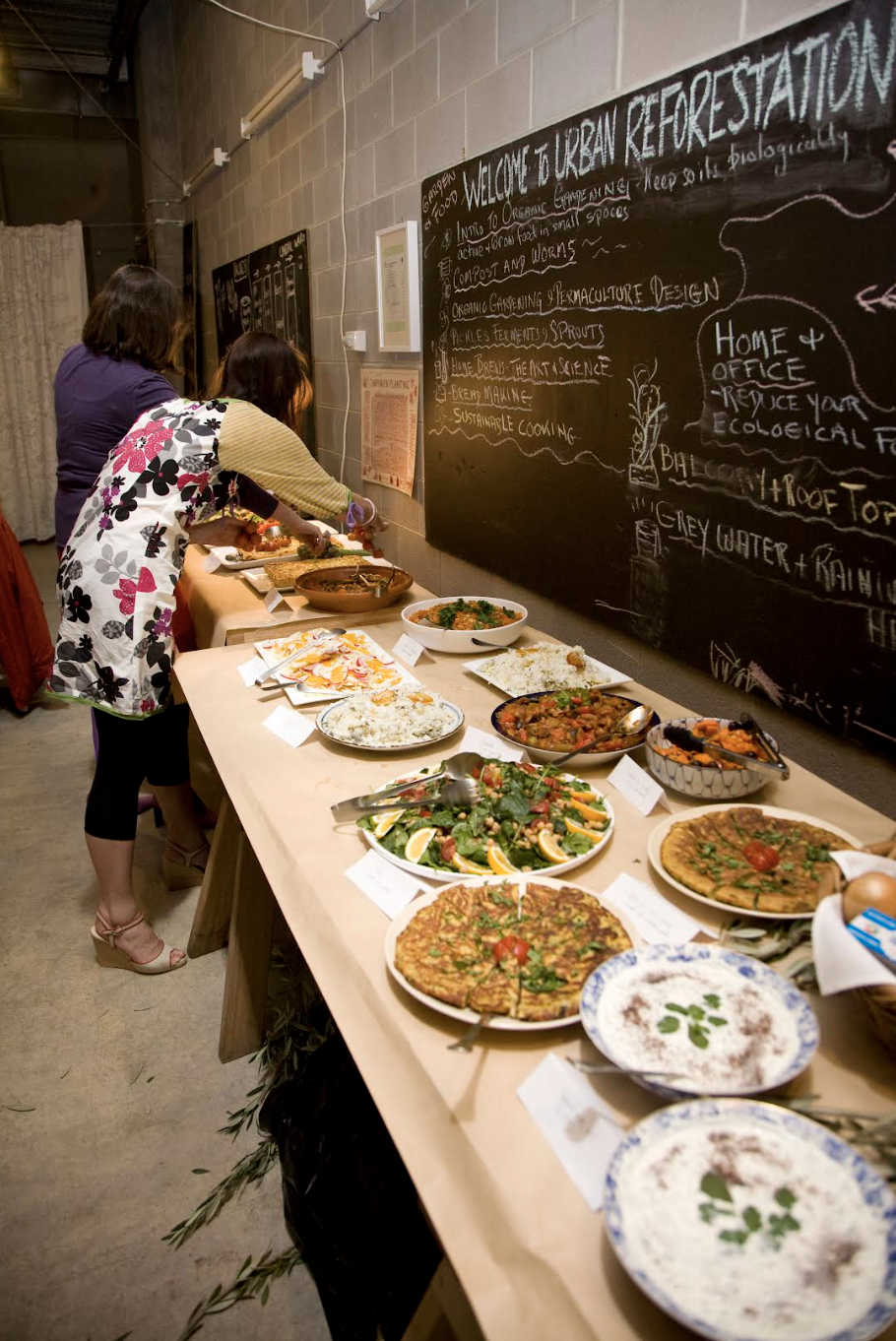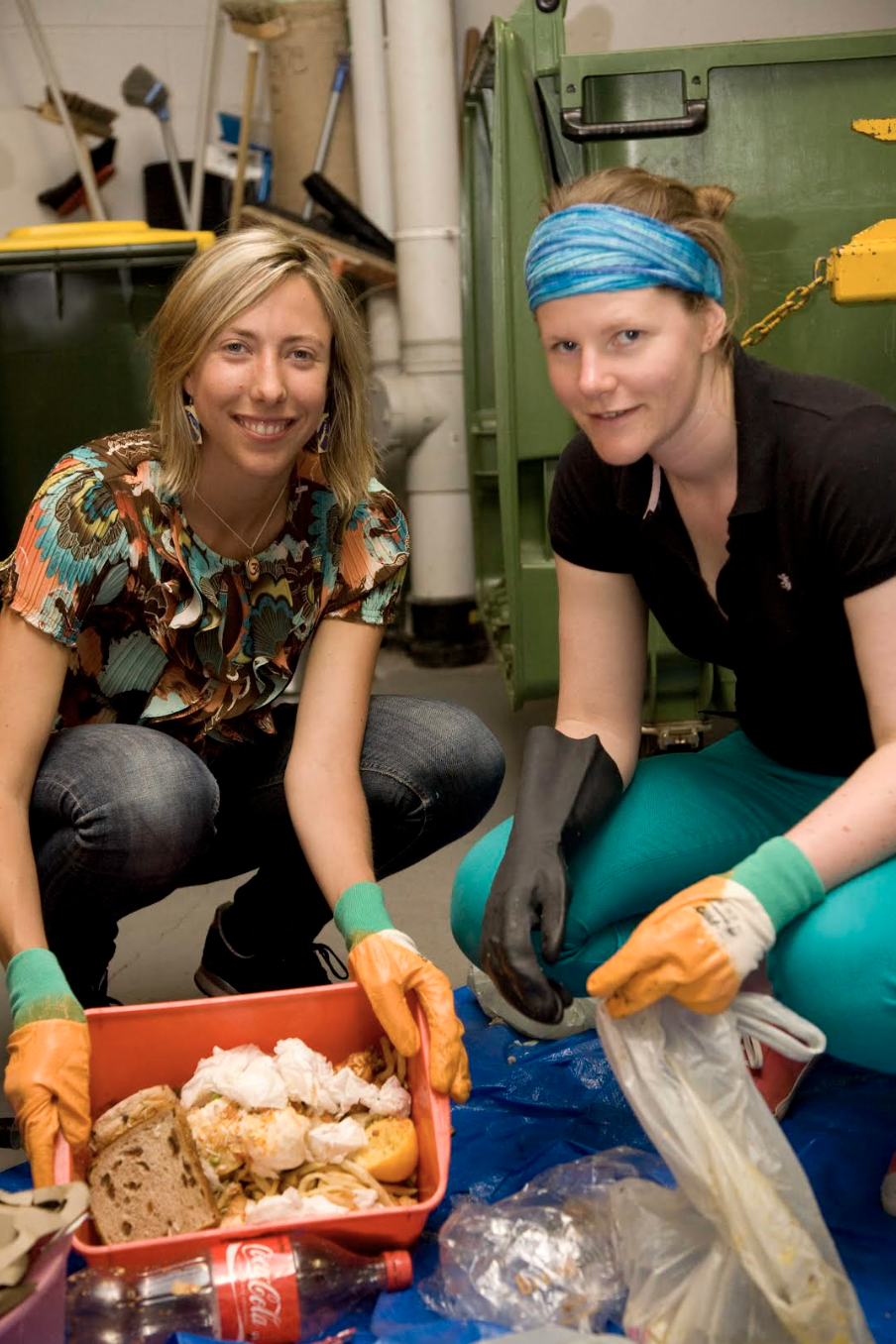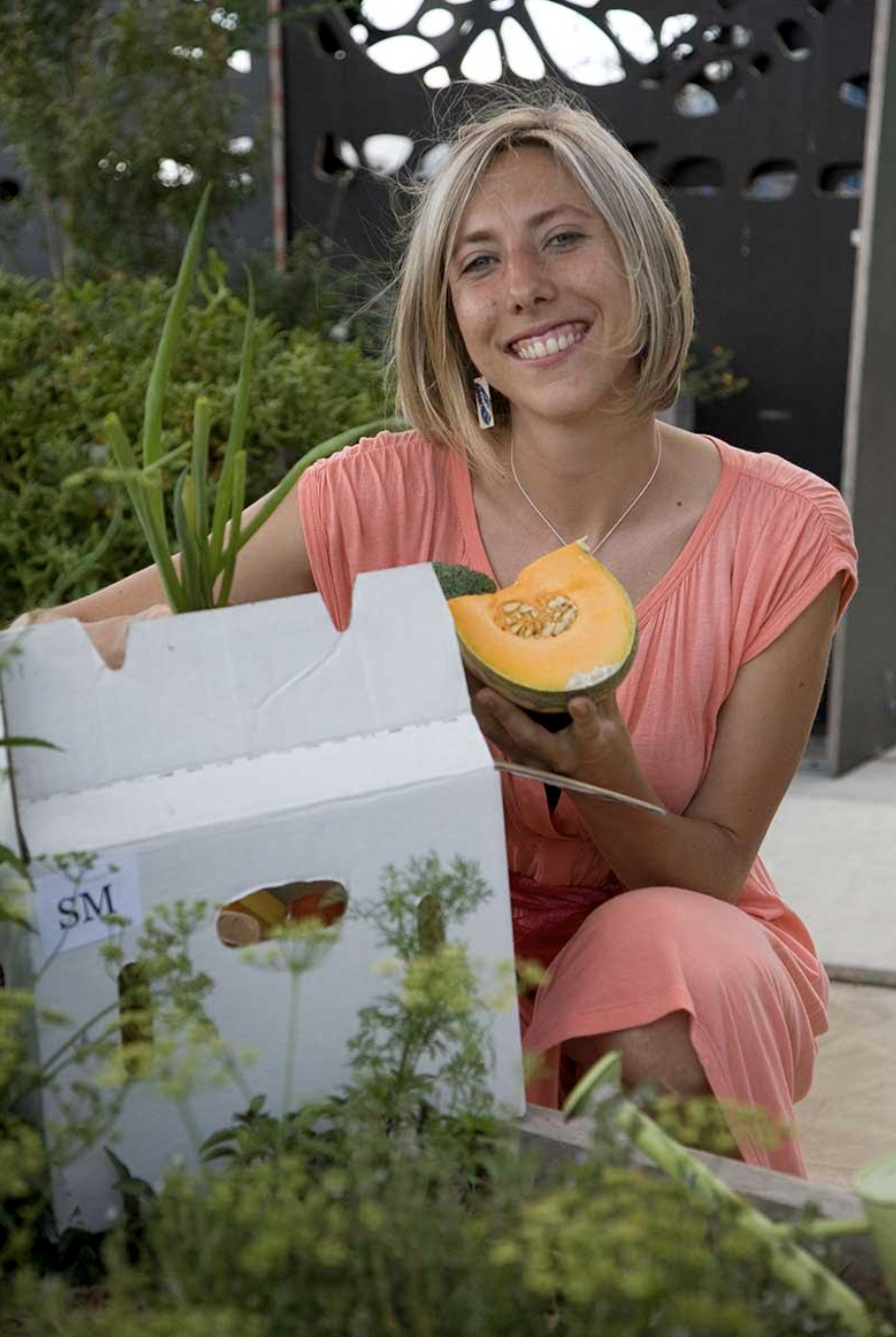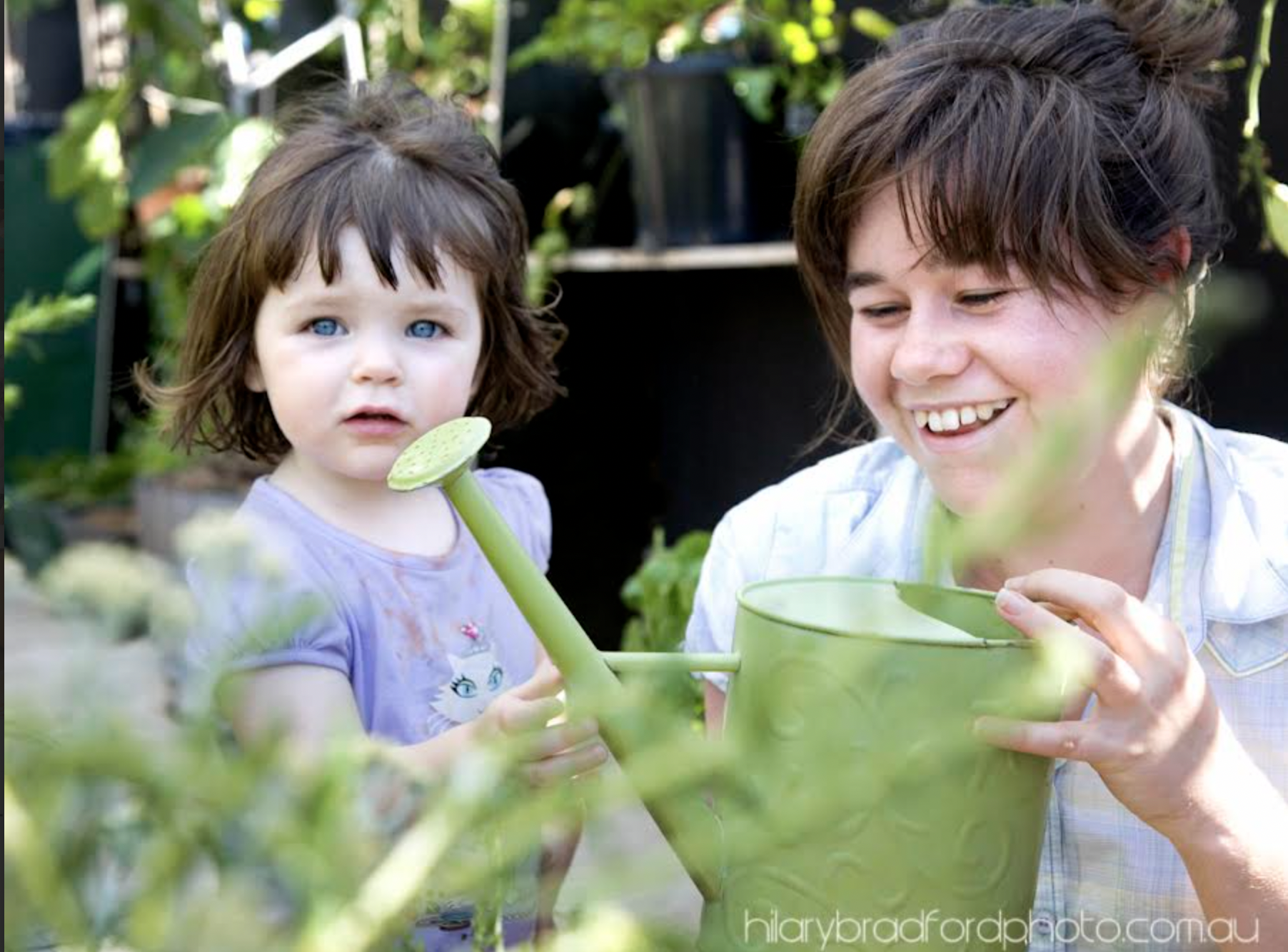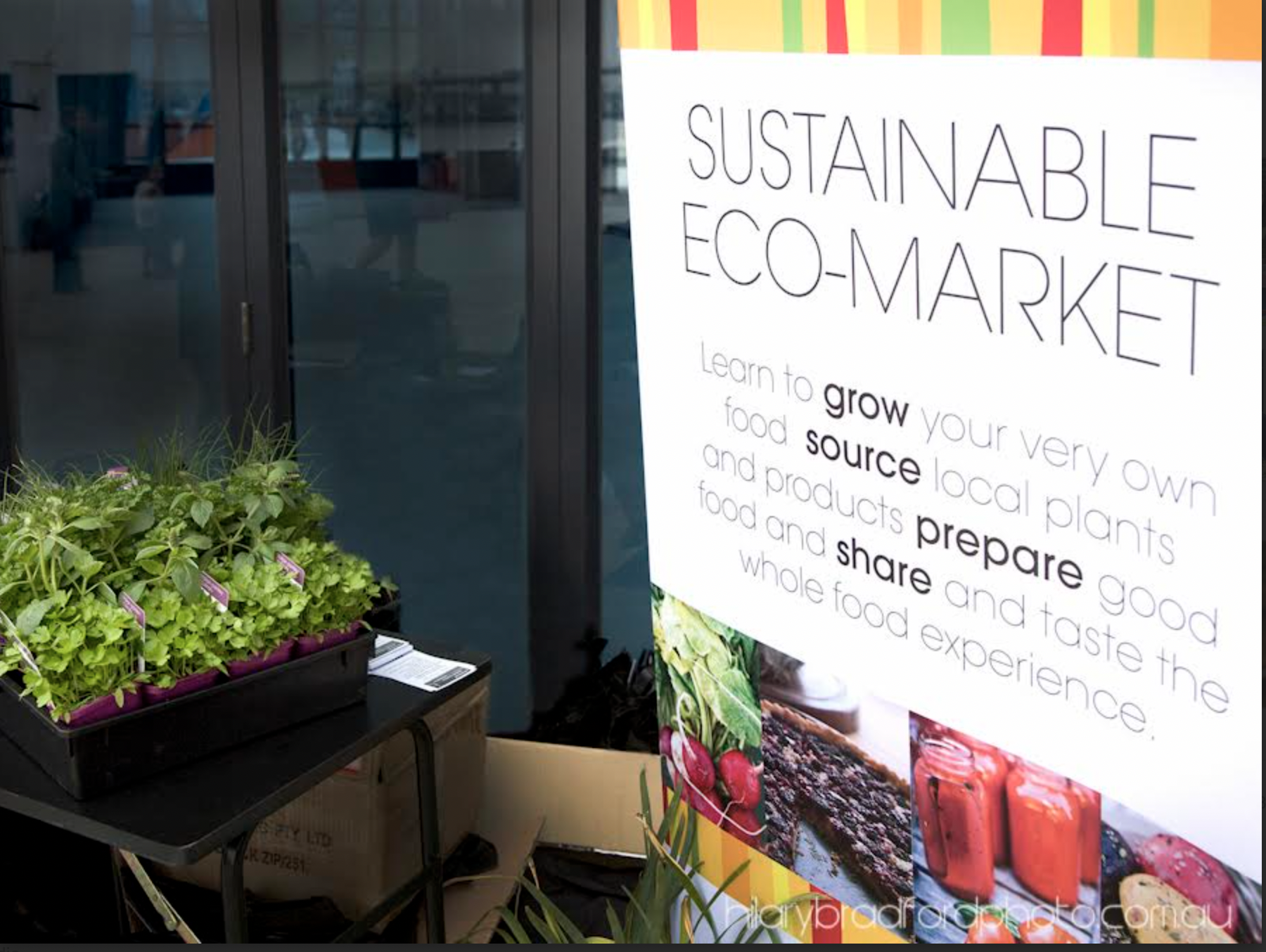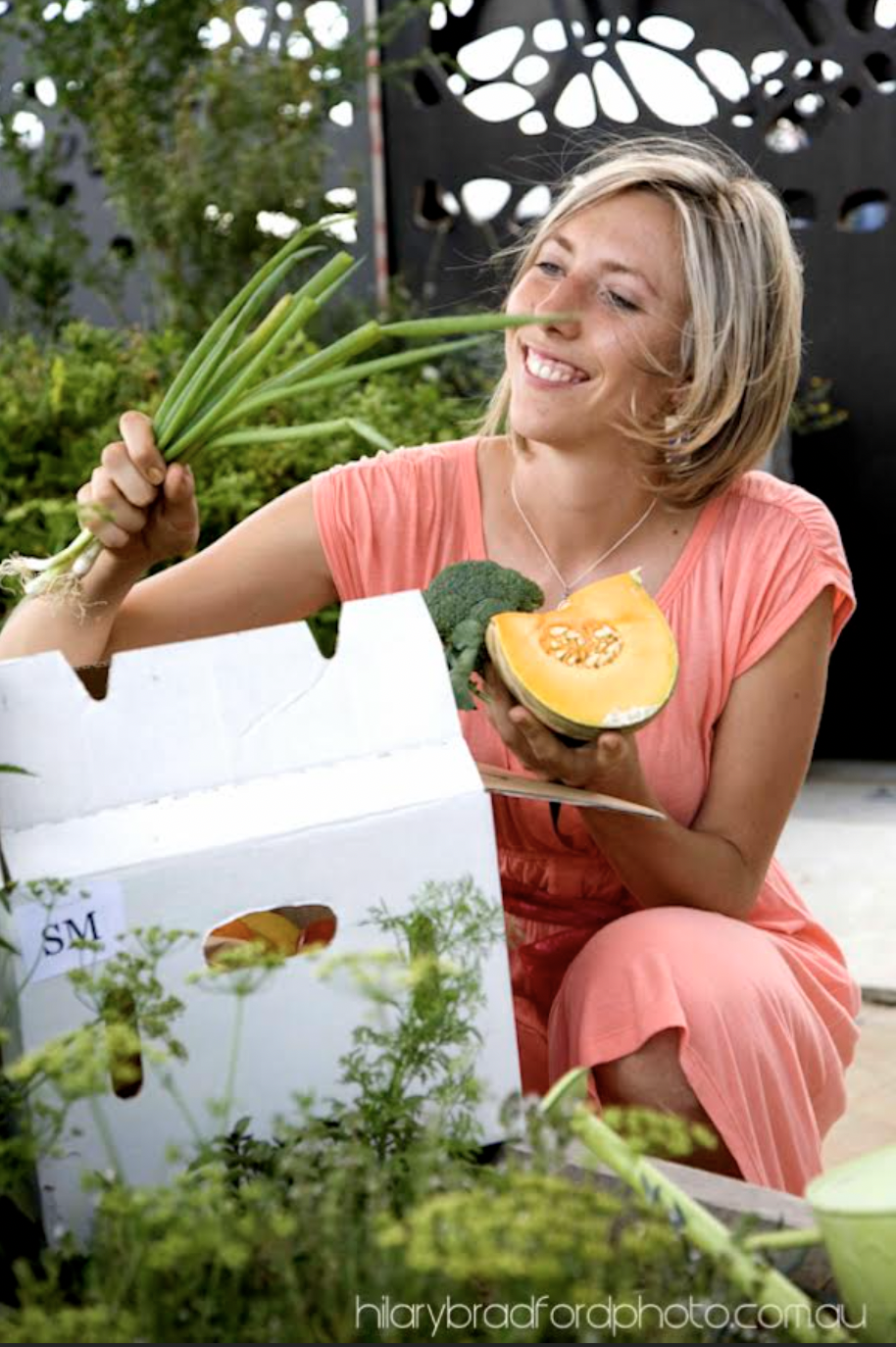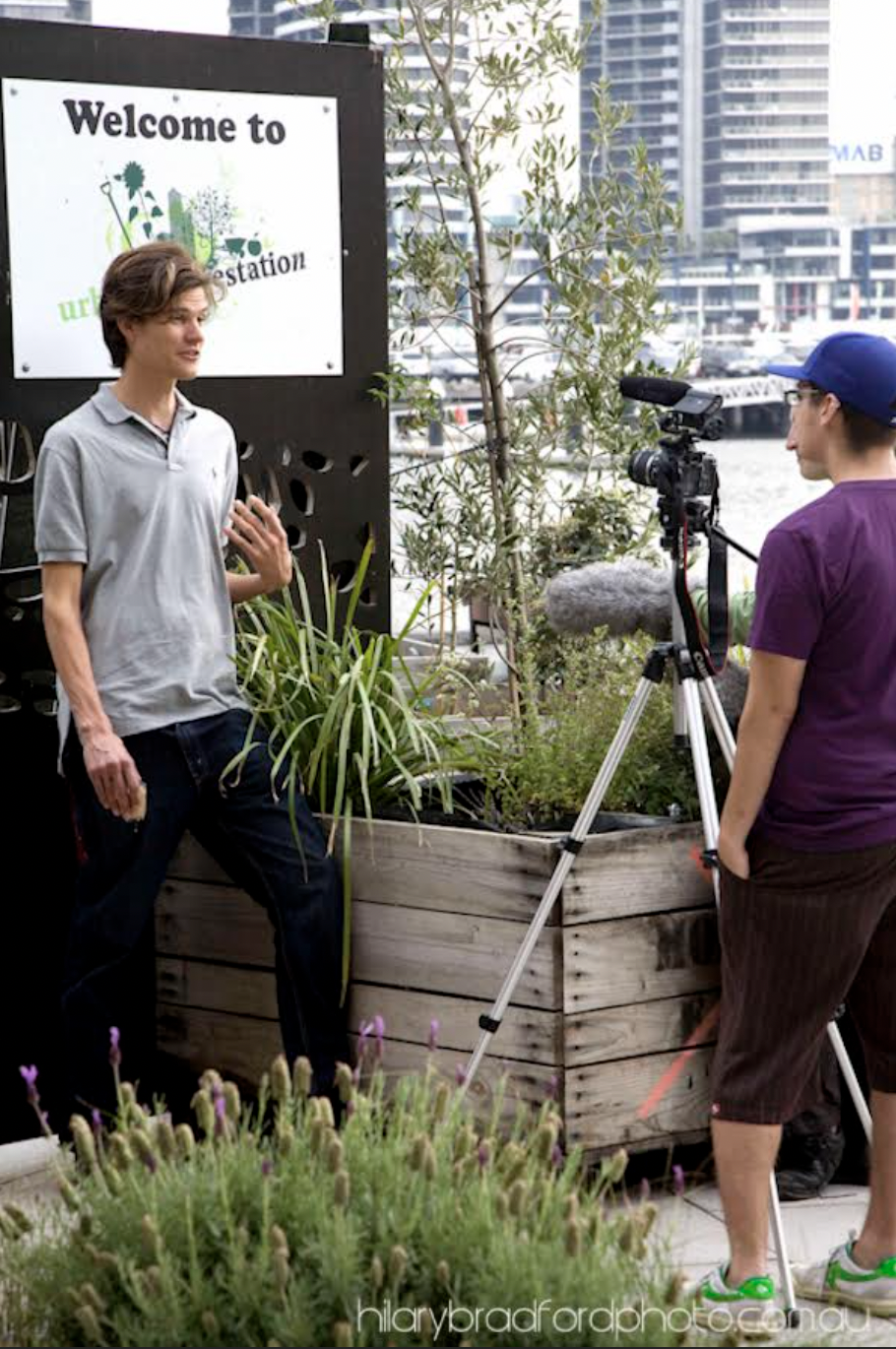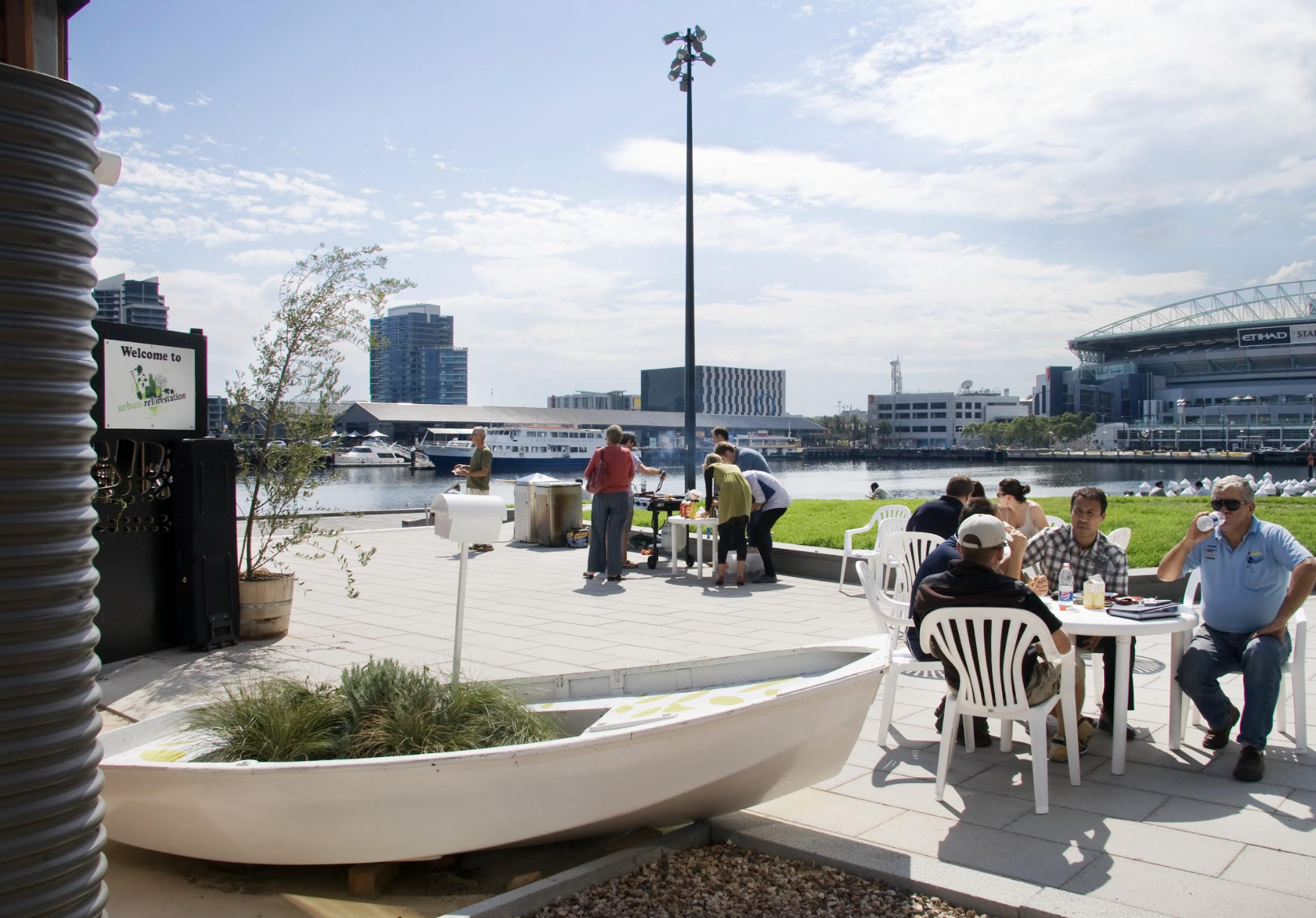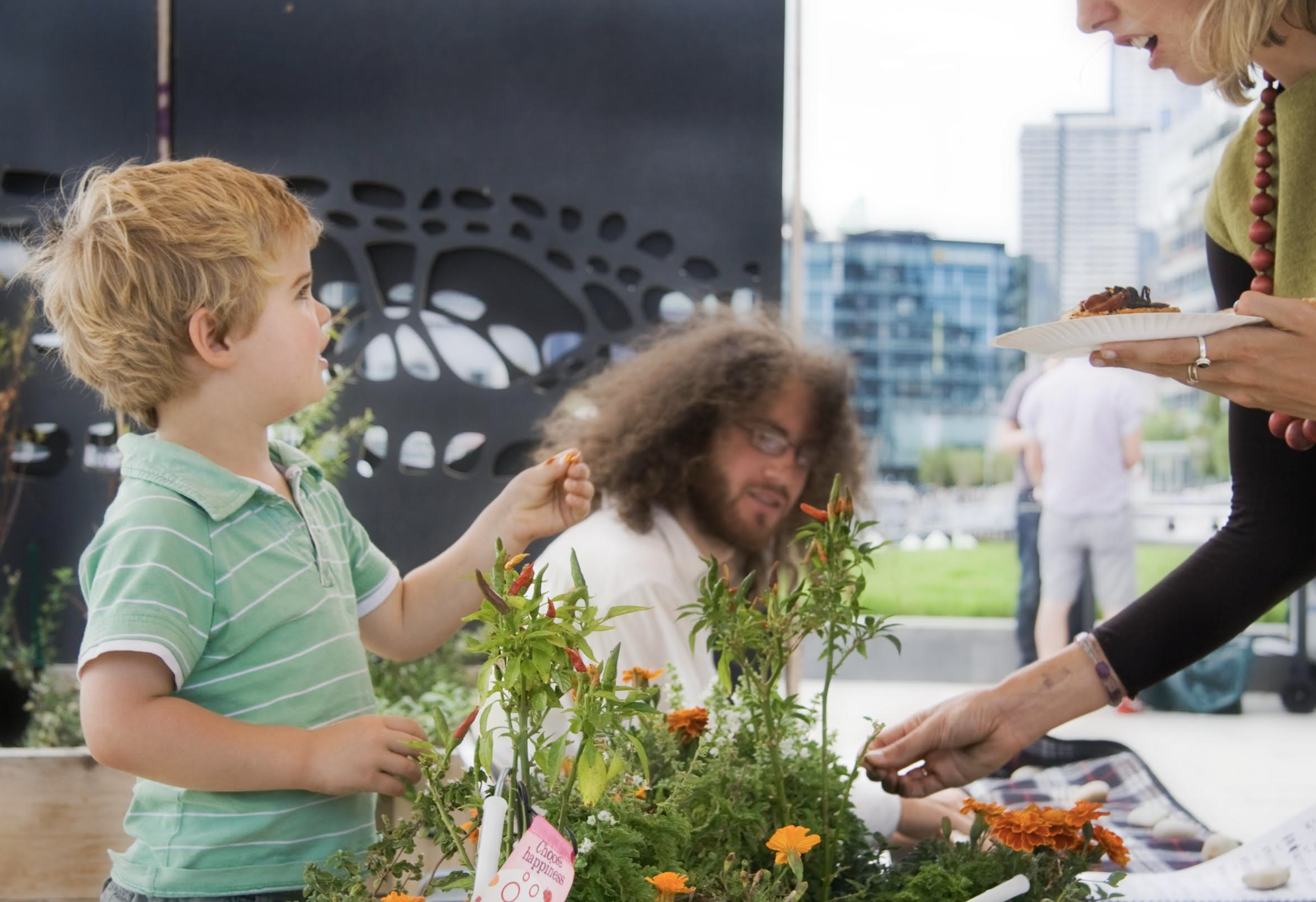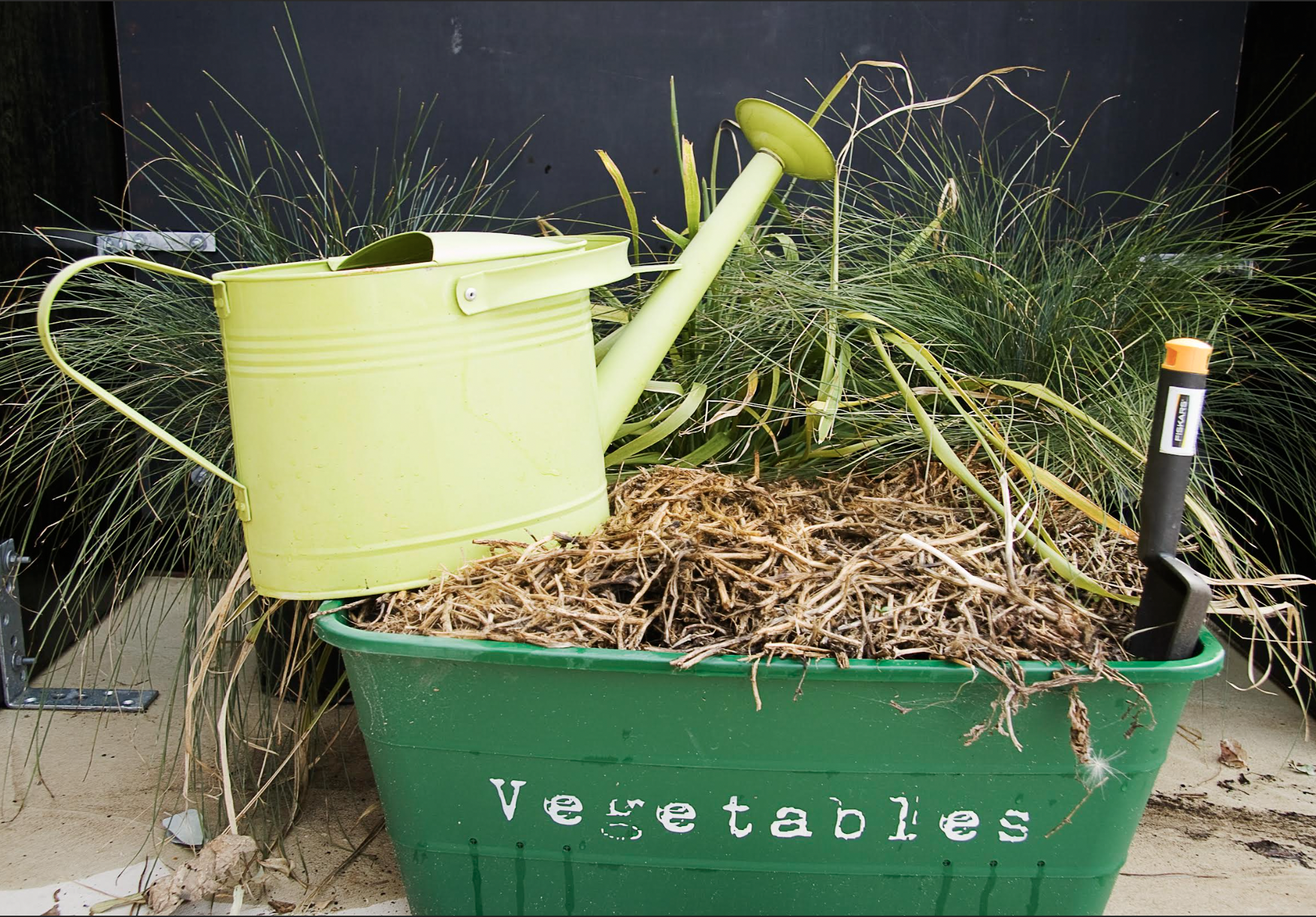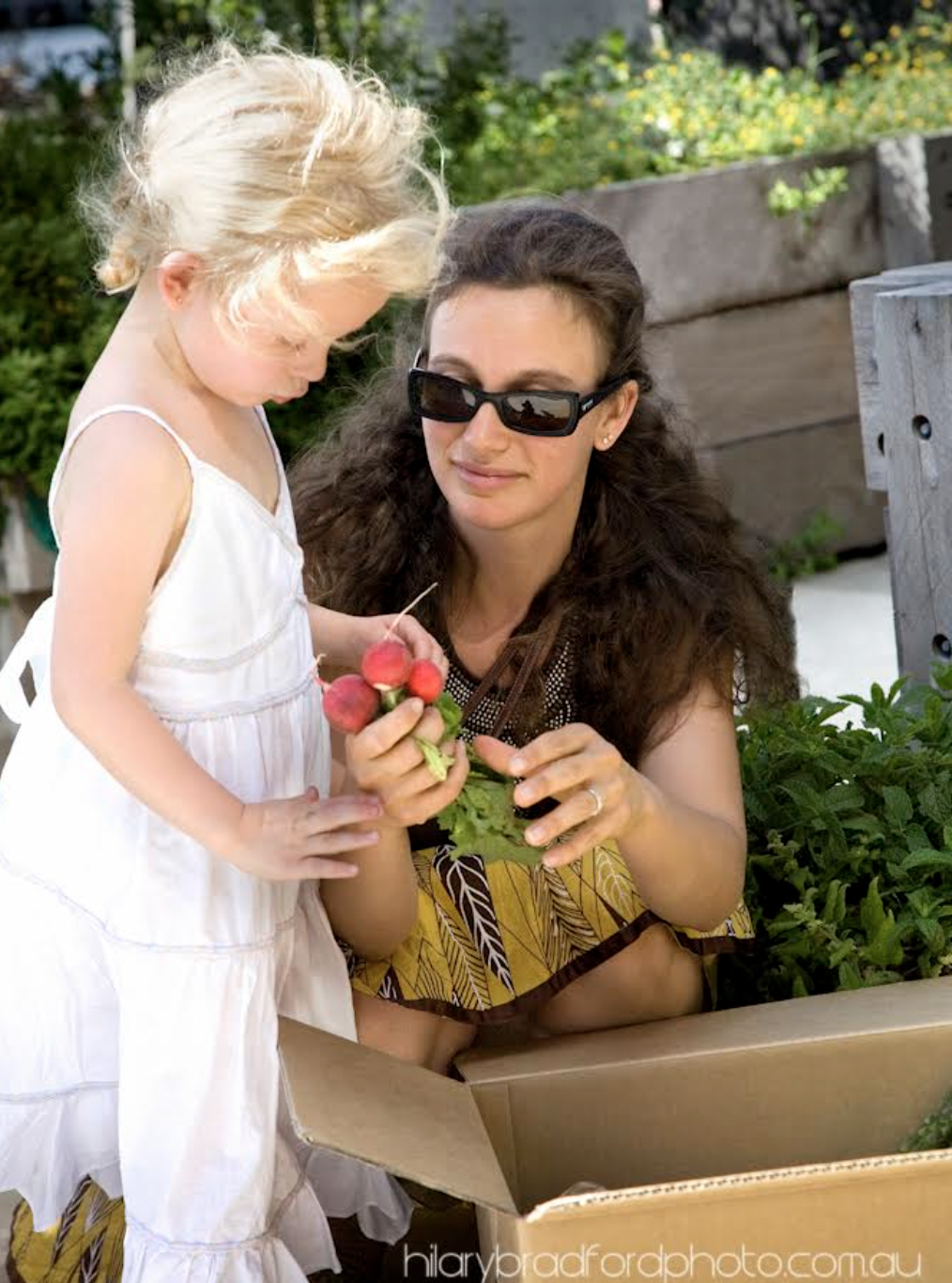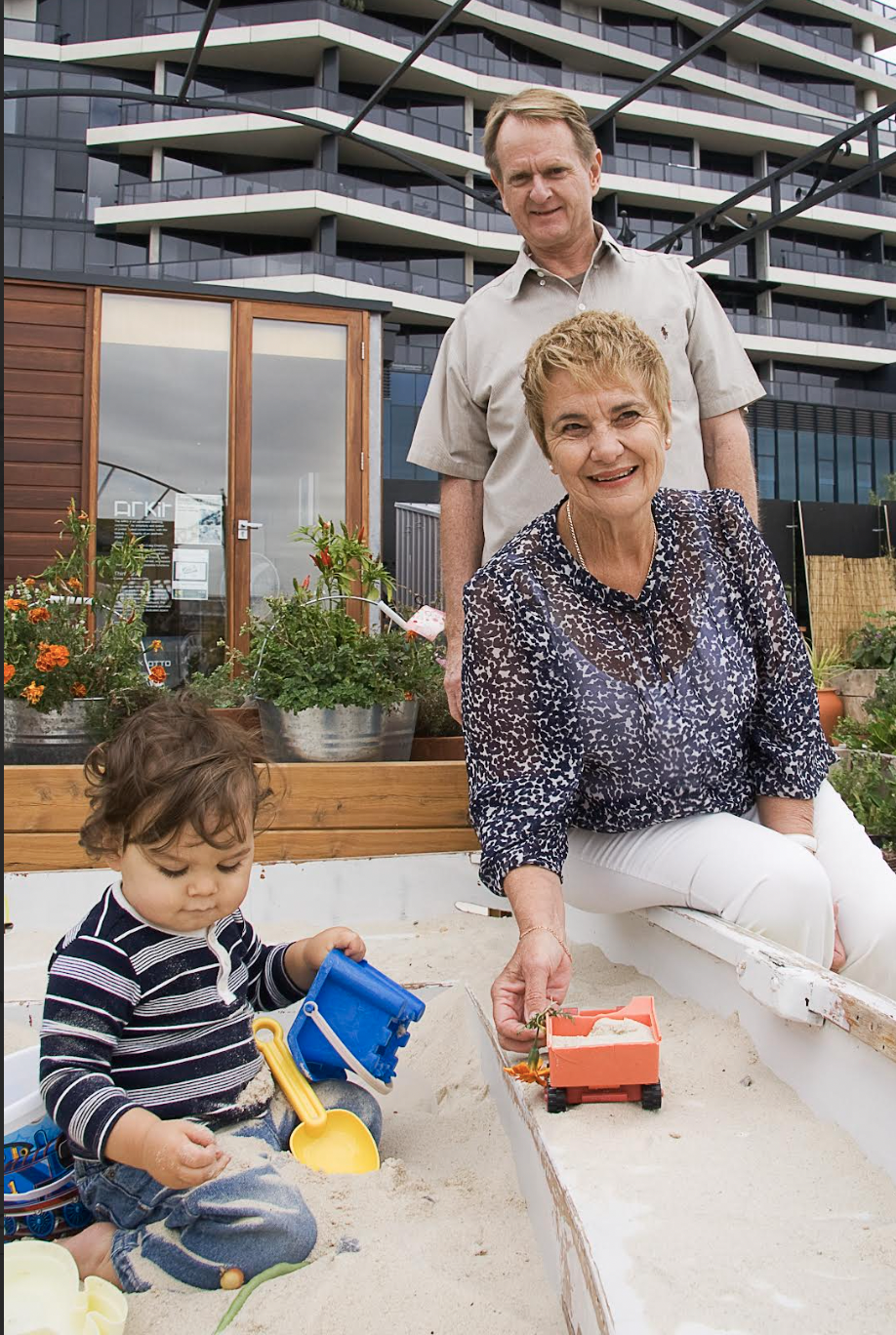Docklands Convivial Food Garden – Melbourne, Australia (2007–2011)
Lead Designer & Co-Facilitator
A high-impact, cross-cultural community garden established in a prominent public space in Melbourne’s Docklands precinct. This garden was designed as a living lab for urban food systems, circular economy experimentation, and community engagement.
Key Achievements:
Cultural & Civic Impact: Brought residents, community groups, and stakeholders together, creating a welcoming green space in an emerging urban area.
Media Recognition: Featured in national newspapers, TV segments, and design publications, influencing public perception of Docklands as more than high-rise apartments.
Policy Influence: Informed the Docklands Place Strategy, demonstrating how community-driven urban interventions can shape city planning and identity.
Practical Outcomes: Provided residents with access to fresh produce, educational workshops, and opportunities to participate in regenerative and ecological practices.
Legacy: A landmark early example of community-led food systems design activism in Australia, showing the power of place-based co-design and ecological literacy.
Design Principles:
Co-creation with diverse communities
Hands-on experimentation in urban agriculture and circular food practices
Integration of social, ecological, and educational goals
Public visibility and storytelling as a driver of civic engagement
Policy Innovation: National Regenerative Garden Initiative
Building on the Docklands example, this proposal imagines scaling practice-based programs nationwide:
Objective: Transform local government from abstract processes to practice-centered governance, using community gardens, urban agriculture, and aquaponics as catalysts.
Implementation Plan:
Seed Funding: $100,000 per council × 568 councils over 3 years (~$56.8 million x 3)
Transition Phase: Councils restructure Economic Development and Community Development budgets toward on-the-ground projects
Co-Design & Facilitation: Officers trained to partner with communities, local farmers, schools, and cultural groups
Garden Types: Urban agriculture hubs, bush gardens, aquaponics, and school food gardens tailored to local contexts
Expected Outcomes:
Every council develops at least one thriving regenerative project
Councils co-design programs with local communities, embedding civic participation and ecological education
Tangible impacts on food security, local economies, biodiversity, and social cohesion
Creation of a living policy laboratory for practice-led local governance
Broader Vision:
This approach demonstrates how public funds can shift from abstract reporting and consultancy toward real, tangible outcomes for citizens. Like Docklands, the initiative would combine community-led design, visible impact, and strategic policy alignment, turning local government into a partner in regenerative civic life.
